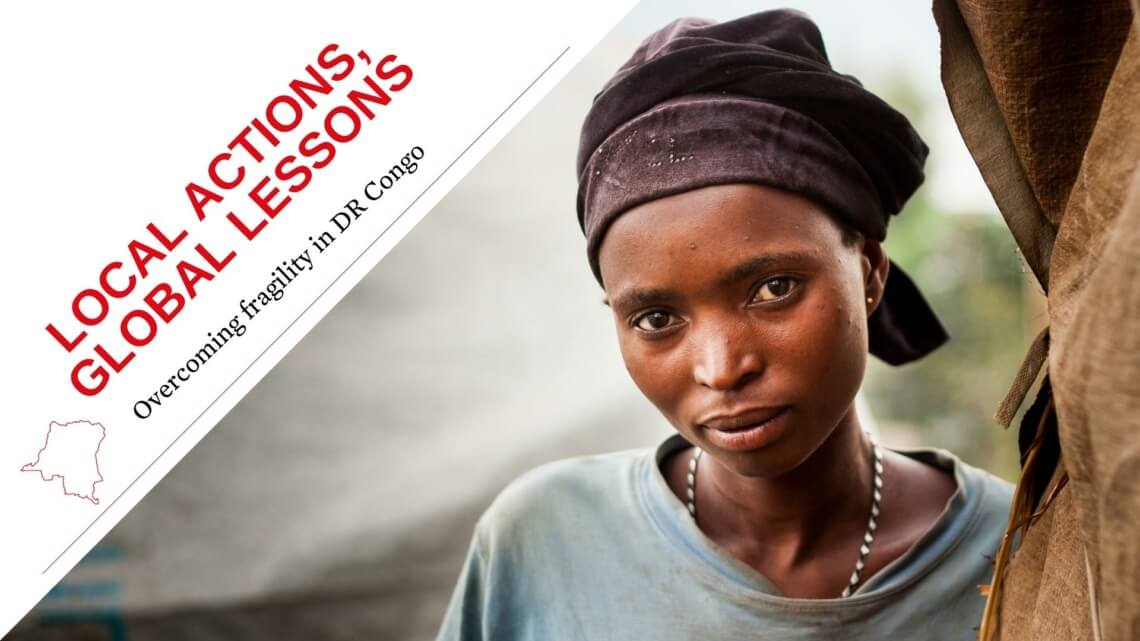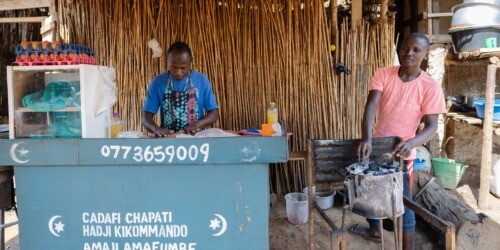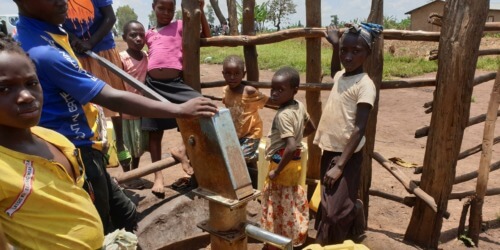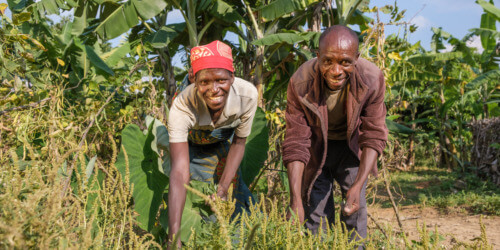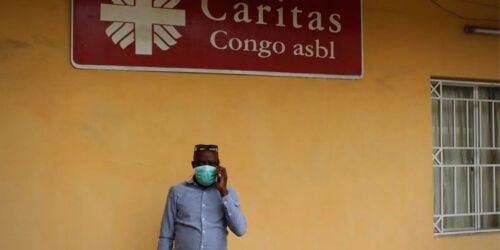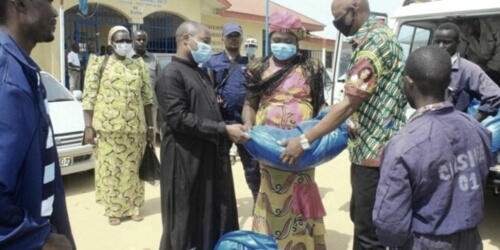“Local Actions, Global Lessons” aims to highlight local lessons related to humanitarian, sustainable development and rights protection issues. You will be able to explore analyses, testimonies, good practices and policy recommendations.
This first edition brings together analyses and testimonies drawn from the Caritas network’s long-standing commitments towards communities living in crisis situations in DR Congo. We propose locally rooted and sustainable solutions to the major challenges raised by sudden crises, population displacements and rights violations.
These can be summarised in 3 points:
- Adapt funding to complex crises by making it more flexible, sustainable and accessible to local actors;
- Foster and evaluate holistic and sustainable approaches (triple nexus[1]) to support populations affected by complex crises ;
- Strengthen local responses that prevent conflict, build peace, defend rights and promote access to justice.
>> READ the full publication : Local Actions, Global Lessons – Overcoming Fragility in DR Congo
2021: another difficult year for vulnerable people in DR Congo
The year 2021 has been particularly difficult for vulnerable communities in DR Congo. These people have been confronted with a combination of one-off and protracted crises. Food insecurity and vulnerabilities have been severely aggravated by the persistence of armed conflict, socio-economic fragility and the impacts of COVID-19.
DR Congo: Five key statistics in 2021
- In the first three quarters of 2021, 1,381 Congolese civilians died as a result of prolonged insecurity in parts of the country.[2]
- DR Congo has the second highest number of internally displaced persons in the world: 5.4 million people. The vast majority (99%) have fled because of conflict and violence in their provinces.[3]
- About 27.3 million people in DR Congo are acutely food insecure, and nearly 7 million of them depend on food aid to survive. [4]
- Globally, DR Congo is one of the 10 countries most vulnerable to the impacts of climate change.[5]
- The UN Humanitarian Response Plan for DR Congo ($2 billion) will be about 35% funded in 2021: a sharp decline from 2015 (64% funded) which contrasts with the growing needs identified.[6]
Local roots and responsiveness: the pillars of Caritas' emergency response
The Caritas network’s response to emergencies is based on 2 pillars:
- local roots which allow to prepare communities for crisis situations,
- extended by a rapid and flexible response capacity with affected populations
The ‘Grand Bargain’ [7] commitments on the localisation of aid should be used as a compass to improve humanitarian actions in DR Congo and elsewhere.
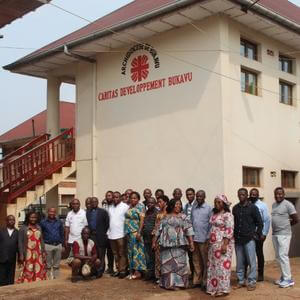
The Caritas Development Bukavu team is particularly close to vulnerable communities in South Kivu © Caritas International Belgium
Caritas' community protection model in remote areas of South Kivu
The Caritas network in DR Congo is convinced that the defence of human rights and the consolidation of social cohesion are essential prerequisites for the inclusive development of communities, as well as for the prevention of conflicts and rights violations.
Local Community Organising Committees (CLOCs) in South Kivu, supported by Caritas Spain, Bukavu, Kasongo and Uvira, provide community-based responses to the peace and justice challenges specific to these contexts.
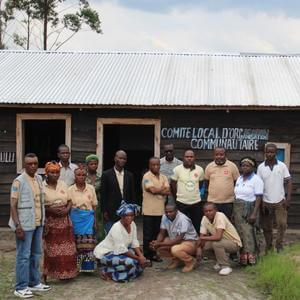
CLOC members in front of their office in Luntukulu, South Kivu. ©Caritas International Belgium
Triple nexus in DR Congo: towards sustainable solutions for populations affected by complex crises
In DR Congo and elsewhere, the Caritas network promotes holistic and systemic responses to sustainably address the needs and expectations of populations affected by complex crises, following the logic of the ‘triple nexus’.[1] This is the case, for example, in the provinces of South Kivu and Kasaï-Central, where Caritas International Belgium and its partners are supporting host, displaced, and returnee communities to rebuild their lives and their societies.
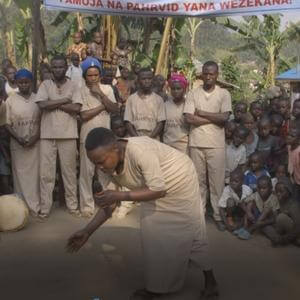
Participatory theatre performances on the theme of social cohesion were organised by youth from communities in South Kivu ©Nyiragongo Ngoma Productions / Caritas International Belgium
>> Would you like to receive the next edition of “Local Actions, Global Lessons ? Subscribe to our newsletter « Points de vue » !









